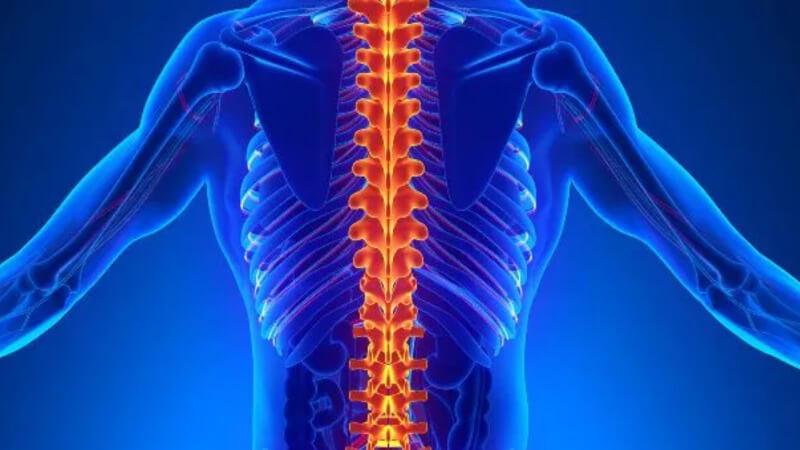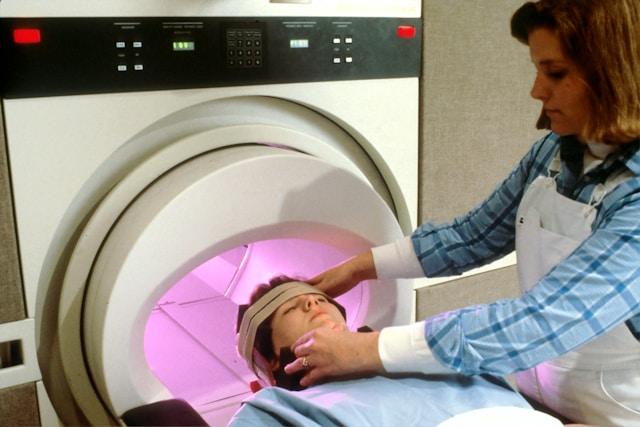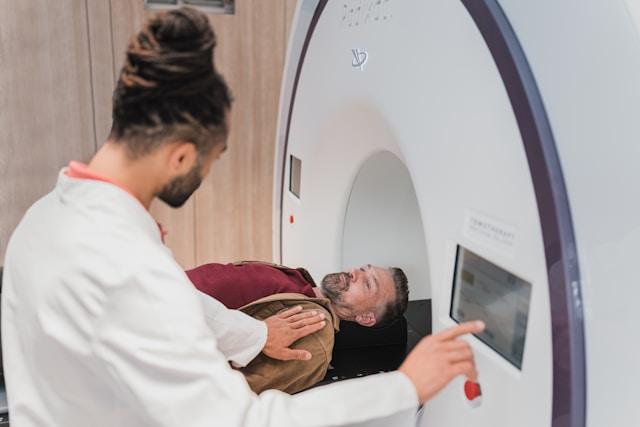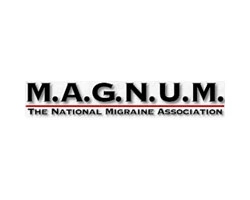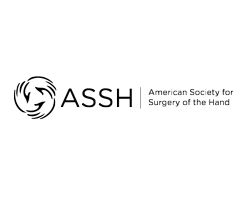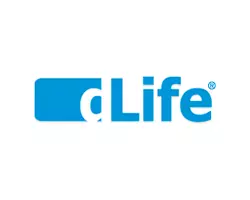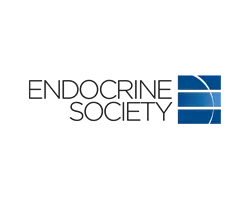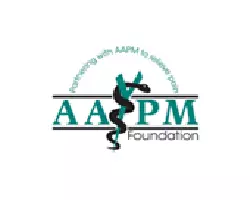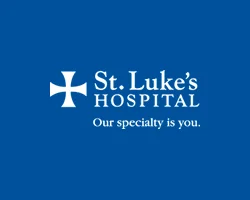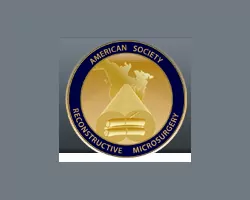Finding the best surgeon is crucial for optimal outcomes. The expertise of spine specialists is crucial in effectively addressing nerve compression through surgical treatment. You need spine specialists with specialized skills and knowledge in spine surgery who can navigate the complexities of chronic conditions like pinched nerves.
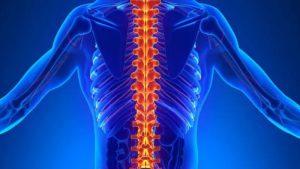
When choosing a specialist for chronic spine conditions, it’s important to consider factors such as experience, qualifications, and patient reviews. A skilled spine surgeon should have a high success rate and positive patient satisfaction, especially when it comes to treating spinal tumors. It is important to seek the expertise of specialists who can provide effective treatment options for these conditions. Don’t settle for anything less.
To locate skilled specialists specializing in spinal tumors and nerve compression, research local medical directories or online platforms. Seek recommendations from primary care physicians or other healthcare professionals who specialize in spine issues, such as pinched nerves or spinal tumors, as they can point you in the right direction. Reputable medical centers or specialized clinics that focus on spine and tumors, nerve compression treatment are also excellent resources.
Finding the best surgeon for nerve compression in the spine is essential for successful treatment and recovery. Let’s dive deeper into these factors and explore how you can identify the right specialist for your spine needs.
Understanding Nerve Compression Surgery
Spine nerve compression surgery is a medical procedure that aims to release pressure on compressed nerves in the spine, providing relief from symptoms and improving overall function. This surgical intervention may be necessary when conservative treatments fail to alleviate the condition of the spine. Let’s delve deeper into the different aspects of spine nerve compression surgery.
Surgical Procedures
Spine nerve compression surgery involves various techniques to address the underlying cause of the compressed nerves in the spine. The specific surgical procedure for nerve compression conditions depends on factors such as the type and severity of the spine.
-
Spine Decompression: This procedure involves removing or trimming any structures that are compressing the spine nerve, such as bone or tissue. By creating more space around the spine and nerve, decompression helps relieve pressure and restore normal nerve function.
-
Transposition: In cases where a nerve in the spine is being compressed by nearby structures, spinal transposition may be performed. This technique involves moving the affected nerve to a new position in the spine, away from the source of compression. By relocating the nerve, pressure on it is alleviated.
-
Neurolysis is a surgical procedure that focuses on freeing up nerves in the spine that have become scarred or adhered due to injury or inflammation. During this spine procedure, scar tissue or adhesions are carefully removed, allowing for improved nerve mobility and function.
Treatment Approaches
Before considering surgery, non-surgical treatment options for managing nerve compression conditions in the spine are typically explored. These approaches aim to reduce pain and improve functionality without invasive procedures, specifically targeting the spine.
-
Physical therapy: Physical therapy exercises and techniques can help strengthen muscles surrounding compressed nerves and improve flexibility. Therapists may employ modalities like ultrasound or electrical stimulation to alleviate pain.
-
Medication: Pain medications such as nonsteroidal anti-inflammatory drugs (NSAIDs), analgesics, or corticosteroids can provide temporary relief from pain associated with nerve compression conditions. However, it’s important to note that medication alone does not address the root cause of the problem.
-
Lifestyle modifications: Making certain lifestyle changes can also contribute to managing nerve compression. These may include maintaining a healthy weight, practicing good posture, avoiding repetitive motions, and using ergonomic equipment.
When conservative treatments fail to provide adequate relief, surgical intervention becomes necessary. A skilled surgeon will conduct a comprehensive evaluation of the patient’s condition to determine the most appropriate treatment approach.
Risks and Complications
As with any surgical procedure, nerve compression surgery carries potential risks and complications that should be considered before making a decision. It’s crucial to have an open discussion with the surgeon about these factors:
-
Infection: There is always a risk of infection at the surgical site. Following proper post-operative care instructions can help minimize this risk.
Conditions Treated in St. Louis
. Louis, it’s important to consider their expertise in treating various conditions. The following are some of the common conditions treated by skilled surgeons in St. Louis:
Cubital Tunnel Syndrome
Cubital tunnel syndrome is a condition where the ulnar nerve becomes compressed at the elbow. This compression can cause symptoms such as numbness or tingling in the ring and little fingers, weakness in hand grip, and pain along the inner side of the forearm. If you’re experiencing these symptoms, it’s crucial to seek out a skilled nerve compression surgeon who can effectively diagnose and treat cubital tunnel syndrome.
A qualified surgeon will begin by conducting a thorough evaluation to determine the extent of nerve compression and identify any underlying causes. They may recommend non-surgical treatments initially, such as physical therapy or wearing a splint to immobilize the affected area. However, if conservative treatments do not provide relief, surgery may be necessary.
During surgery for cubital tunnel syndrome, the surgeon will release pressure on the ulnar nerve by either removing tissue or repositioning structures that are compressing it. They will carefully assess your individual case and determine which surgical technique is most appropriate for you.
Diabetic Neuropathy
Diabetic neuropathy is a type of nerve damage that can occur as a result of diabetes. It often affects the feet and hands, causing symptoms such as numbness, tingling, or pain. If you have diabetes and are experiencing these symptoms, it’s essential to consult with surgeons who have experience in treating diabetic neuropathy.
These specialized surgeons understand how diabetes affects nerves and can provide tailored care to alleviate your specific symptoms. They may recommend lifestyle changes, such as managing blood sugar levels through diet and exercise, as well as medications to help control pain or manage other complications associated with diabetic neuropathy.
In some cases, surgical intervention may be necessary to relieve nerve compression and improve symptoms. Surgeons experienced in diabetic neuropathy can assess your condition and determine if surgery is the best course of action for you.
Thoracic Outlet Syndrome
Thoracic outlet syndrome occurs when nerves or blood vessels become compressed in the thoracic outlet area, which is located between the collarbone and first rib. This compression can lead to symptoms such as pain, weakness, or numbness in the neck, shoulder, arm, or hand. If you’re experiencing these symptoms, it’s crucial to seek out skilled surgeons who specialize in thoracic outlet syndrome for accurate diagnosis and effective treatment.
Surgeons specializing in thoracic outlet syndrome understand the complexity of this condition and can provide comprehensive care tailored to your needs.
Patient Outcomes and Stories
Patient outcomes and stories play a crucial role in understanding the success rates and postoperative care required. Let’s delve into these aspects to help you find the best nerve compression surgeon in St. Louis.
Nerve Surgery Success
The success rates of nerve compression surgery can vary depending on several factors, including the specific condition being treated and individual patient factors. It is essential to remember that no surgical procedure guarantees a 100% success rate. However, skilled surgeons with expertise in nerve compression surgery tend to have higher success rates due to their experience and specialized techniques.
To ensure the best possible outcome for your surgery, it is vital to discuss success rates with potential surgeons. Inquire about their track record and ask for any patient testimonials or case studies they may have. Hearing about other patients’ experiences can provide valuable insights into a surgeon’s abilities and the likelihood of achieving positive results.
Keep in mind that each case is unique, so individual results may vary. However, by choosing a surgeon with a proven track record of successful surgeries, you increase your chances of a favorable outcome.
Postoperative Care
Proper postoperative care plays a significant role in ensuring optimal recovery after nerve compression surgery. Following your surgeon’s instructions diligently is crucial during this period. Here are some key aspects of postoperative care:
-
Wound Care: Take proper care of your surgical incisions as instructed by your surgeon. Keep the area clean and dry, follow any dressing changes or wound care protocols provided, and report any signs of infection promptly.
-
Physical Therapy: Physical therapy is often an integral part of the recovery process after nerve compression surgery. Your surgeon may recommend exercises or stretches designed to improve strength, flexibility, and range of motion in the affected area.
-
Pain Management: Your surgeon will prescribe appropriate pain medications to manage discomfort during the recovery period. Take the medications as directed and communicate any concerns or changes in pain levels to your healthcare team.
-
Activity Restrictions: Your surgeon may provide specific guidelines regarding activity restrictions after surgery. It is crucial to follow these instructions to prevent further damage and promote healing.
-
Follow-up Appointments: Regular follow-up appointments with your surgeon are essential for monitoring your progress and addressing any concerns that may arise during the recovery process. These appointments allow your surgeon to assess the success of the surgery, make necessary adjustments to your treatment plan, and ensure optimal healing.
Specialized Clinics for Nerve Issues
. Louis, it’s important to seek out specialized clinics that offer comprehensive services for nerve issues. These clinics understand the complexity of nerve compression and provide a multidisciplinary approach to treatment.
Comprehensive nerve compression treatment often involves a multidisciplinary approach. Skilled surgeons collaborate with other healthcare professionals such as physical therapists, pain specialists, and neurologists to provide holistic care. By accessing a range of services, patients can benefit from comprehensive evaluation and personalized treatment plans.
One of the advantages of seeking treatment at a specialized clinic is the availability of advanced treatment options. Skilled nerve compression surgeons stay updated with the latest advancements in surgical techniques and technologies. This ensures that patients have access to cutting-edge treatments that can improve outcomes.
Advanced treatment options may include minimally invasive procedures or robotic-assisted surgery for improved outcomes. Minimally invasive procedures involve smaller incisions, less tissue damage, and faster recovery times compared to traditional open surgeries. Robotic-assisted surgery allows surgeons to perform complex procedures with enhanced precision and control.
Choosing a surgeon who embraces innovation increases the likelihood of successful treatment. By staying current with advancements in their field, these surgeons are able to offer patients the most effective and least invasive treatments available.
In addition to advanced surgical techniques, specialized clinics also prioritize patient education and support throughout the treatment process. They understand that managing nerve compression requires ongoing care and lifestyle adjustments. Patients receive guidance on post-operative care, rehabilitation exercises, pain management strategies, and lifestyle modifications that can help prevent future complications.
Specialized clinics also offer state-of-the-art diagnostic tools such as imaging tests (MRI or CT scans) and electrodiagnostic studies (EMG/NCS) to accurately diagnose nerve compression conditions. These diagnostic tests provide valuable information about the location and severity of nerve compression, helping surgeons develop targeted treatment plans.
These specialists have extensive experience in performing nerve decompression surgeries and are well-versed in the intricacies of the nervous system.
Diagnosing Nerve Compression
. Louis, it is crucial to understand how they diagnose this condition. Proper diagnosis is the first step towards effective treatment and relief from symptoms.
Symptoms Identification
Identifying and understanding the specific symptoms of nerve compression is crucial for accurate diagnosis. Nerve compression can manifest in various ways, depending on the affected nerves and their location in the body. Skilled surgeons have expertise in recognizing and interpreting symptoms associated with different nerve compression conditions.
For example, if you are experiencing pain, tingling, or numbness in your hand or fingers, a surgeon specializing in carpal tunnel syndrome will be able to identify these symptoms as potential indicators of nerve compression in the wrist area.
Clear communication about your symptoms is vital when consulting with a surgeon. By describing your symptoms accurately and providing details about when they started and how they affect your daily activities, you can help the surgeon develop an appropriate treatment plan tailored to your specific needs.
Causes of Neuropathy
Nerve compression can be caused by various factors, including repetitive motions, trauma, anatomical abnormalities, or underlying medical conditions. Identifying the underlying cause is essential for effective treatment.
Skilled surgeons investigate potential causes to address the root of the problem. For instance, if you have been engaging in repetitive activities that put pressure on a particular nerve group (such as typing for long hours leading to carpal tunnel syndrome), a knowledgeable surgeon will consider this information during diagnosis.
In some cases, nerve compression may be secondary to an underlying medical condition such as diabetes or arthritis. A skilled surgeon will take into account these factors during diagnosis and work towards treating both the underlying condition and relieving nerve compression symptoms.
Treatment Options for Cubital Tunnel Syndrome
Cubital tunnel syndrome is a condition that occurs when the ulnar nerve becomes compressed or irritated at the elbow or wrist. This compression can lead to symptoms such as numbness, tingling, and weakness in the hand and fingers. If you are experiencing these symptoms, it is important to seek out skilled surgeons who specialize in ulnar nerve entrapment for an accurate diagnosis and targeted treatment options.
There are both non-surgical and surgical options available. Non-surgical treatments may include physical therapy, medications, splinting, or lifestyle modifications. These conservative approaches aim to relieve pressure on the ulnar nerve and reduce symptoms. Physical therapy exercises can help strengthen the muscles around the elbow and improve flexibility. Medications such as nonsteroidal anti-inflammatory drugs (NSAIDs) may be prescribed to reduce inflammation and pain. Splinting can also be used to keep the elbow in a neutral position while sleeping or during activities that aggravate symptoms. Lifestyle modifications like avoiding activities that exacerbate symptoms or using ergonomic tools can also provide relief.
However, if conservative treatments fail to provide adequate relief, surgical intervention may be necessary. Skilled surgeons offer a range of surgical treatment options based on individual needs. One common surgical procedure for cubital tunnel syndrome is called ulnar nerve decompression surgery. During this procedure, the surgeon releases any structures compressing the ulnar nerve at the elbow. This can involve removing bone spurs or releasing tight ligaments or muscles that are putting pressure on the nerve.
Another surgical option is called ulnar nerve transposition surgery. In this procedure, the surgeon moves the ulnar nerve from its original position behind the medial epicondyle (the bony prominence on the inner side of your elbow) to a new location in front of it. This relocation helps prevent further compression of the nerve during elbow movement.
It is important to note that the choice of surgical treatment depends on various factors, including the severity of the condition, the patient’s overall health, and their individual needs. Skilled surgeons specializing in ulnar nerve entrapment will carefully evaluate each case and recommend the most appropriate surgical approach.
Addressing Diabetic Neuropathy
. Louis, it is essential to understand the underlying causes of nerve compression and how comprehensive treatments can provide long-term relief. Skilled surgeons play a crucial role in addressing diabetic neuropathy by conducting thorough evaluations and developing personalized treatment plans.
Understanding Causes
Understanding the underlying causes of nerve compression is vital in guiding treatment decisions. Nerve compression can be caused by various factors, such as repetitive motions, injuries, or medical conditions like diabetes. Skilled surgeons conduct thorough evaluations to identify these contributing factors and determine the most appropriate course of action.
For individuals with diabetic neuropathy, addressing the root cause is particularly important. Diabetes can lead to nerve damage over time, resulting in numbness, tingling, or pain in the affected areas. By identifying and treating the underlying cause of nerve compression, surgeons can improve the chances of successful treatment outcomes.
Comprehensive Treatments
Comprehensive treatments for nerve compression involve addressing both the symptoms and underlying causes. Skilled surgeons develop personalized treatment plans that encompass various modalities to ensure comprehensive care for their patients.
A holistic approach is often taken when treating diabetic neuropathy. This may include a combination of medications to manage pain and inflammation, physical therapy exercises to improve strength and flexibility, lifestyle modifications such as maintaining a healthy weight and managing blood sugar levels, as well as surgical interventions if necessary.
By considering all aspects of an individual’s condition and tailoring treatments accordingly, skilled surgeons aim to provide long-term symptom relief and improve overall quality of life for their patients.
In addition to medical interventions, patient education plays a significant role in comprehensive treatments for nerve compression. Surgeons take the time to explain the condition thoroughly, discuss available treatment options, and address any concerns or questions their patients may have. This collaborative approach ensures that patients are actively involved in their own care journey and empowers them to make informed decisions about their treatment.
Innovative Approaches to Headache Surgery
Chronic pain resulting from nerve compression can have a significant impact on an individual’s quality of life. It can affect their ability to perform daily activities, work, and enjoy leisure time. When conservative treatments fail to provide adequate relief, surgical intervention may be necessary. Skilled surgeons who specialize in nerve compression understand the importance of effective pain relief and strive to provide comprehensive care.
One of the key aspects of finding the best nerve compression surgeon in St. Louis is to ensure that they have expertise in pain management strategies. Chronic pain requires a multidisciplinary approach, combining surgical interventions with other treatment modalities such as physical therapy, medication management, and psychological support. A skilled surgeon will take the time to discuss these strategies with their patients, ensuring that all aspects of their pain are addressed.
In addition to comprehensive pain management, it is crucial to choose a surgeon who stays up-to-date with surgical innovations and advancements in the field. Nerve compression surgery has seen significant developments in recent years, offering improved outcomes and faster recovery times for patients. Surgeons who embrace innovative techniques such as endoscopic surgery or nerve decompression can enhance the overall treatment experience for their patients.
Endoscopic surgery involves using a small camera inserted through tiny incisions to visualize and treat compressed nerves. This minimally invasive approach allows for precise targeting of affected areas while minimizing damage to surrounding tissues. Patients undergoing endoscopic surgery often experience less postoperative pain, shorter hospital stays, and quicker return to normal activities compared to traditional open surgeries.
Nerve decompression is another innovative technique used by skilled surgeons specializing in nerve compression treatment. This procedure involves releasing pressure on compressed nerves by removing or repositioning nearby structures causing the compression. By addressing the root cause of nerve compression directly, patients can experience long-term relief from chronic headaches and associated symptoms.
When searching for a nerve compression surgeon in St. Louis, it is essential to consider their experience and expertise in these innovative surgical approaches. Look for surgeons who have a track record of successful outcomes and positive patient testimonials. Consider seeking referrals from trusted healthcare professionals or fellow patients who have undergone similar surgeries.
Conclusion
Congratulations! You’ve reached the end of our journey exploring nerve compression surgery in St. Louis. We’ve covered a range of topics, from understanding the conditions treated to innovative approaches for headache surgery. Through patient stories and specialized clinics, we’ve showcased the expertise and success of surgeons in this field.
Now that you have a deeper understanding of nerve compression and the available treatment options, it’s time to take action. If you or someone you know is suffering from nerve issues, don’t hesitate to reach out to a specialized clinic or surgeon in St. Louis. They can provide the expert care and personalized treatment needed to alleviate pain and improve quality of life.
Remember, knowledge is power. Stay informed about the latest advancements in nerve compression surgery and share this valuable resource with others who may benefit from it. Together, we can empower individuals to find the best care possible and live their lives free from the limitations of nerve compression.
Frequently Asked Questions
What is nerve compression surgery?
Nerve compression surgery is a procedure that aims to relieve pressure on compressed nerves, which can cause pain, numbness, and other symptoms. It involves removing or adjusting the structures that are compressing the nerve to restore normal function and alleviate discomfort.
How can I find the best spine specialists for nerve compression surgery in St. Louis?
To find the best nerve compression surgeon in St. Louis, consider factors such as their experience, expertise in nerve-related conditions, patient reviews, and success rates. You can also consult with your primary care physician for recommendations or visit reputable medical directories like neurpoaxclinic.com to explore specialized clinics and surgeons in your area.
What spinal conditions can be treated through surgical treatment for nerve compression by spine specialists in St. Louis? This surgical procedure is effective in addressing various issues, including spinal tumors.
Nerve compression surgery in St. Louis can address various conditions such as cubital tunnel syndrome (elbow), carpal tunnel syndrome (wrist), sciatica (lower back and leg), peripheral neuropathy (nerve damage), and migraine headaches caused by nerve issues. It’s essential to consult with a qualified surgeon who specializes in your specific condition for accurate diagnosis and treatment options.
Are there specialized clinics for orthopedic and surgical treatment of nerve-related issues in St. Louis? Are there spine specialists in hospitals?
Yes, there are specialized clinics dedicated to diagnosing and treating nerve-related issues in St. Louis. These clinics focus on providing comprehensive care for conditions like carpal tunnel syndrome, cubital tunnel syndrome, peripheral neuropathy, and more. They have experienced surgeons who specialize in nerve compression surgeries using innovative approaches for better patient outcomes.
How is nerve compression diagnosed?
Nerve compression is typically diagnosed through a combination of medical history evaluation, physical examination, imaging tests (such as MRI or ultrasound), and sometimes electrodiagnostic studies like electromyography (EMG) or nerve conduction studies (NCS). A skilled healthcare professional specializing in neurology or orthopedics can assess your symptoms and recommend appropriate diagnostic tests to determine the presence and severity of nerve compression.

